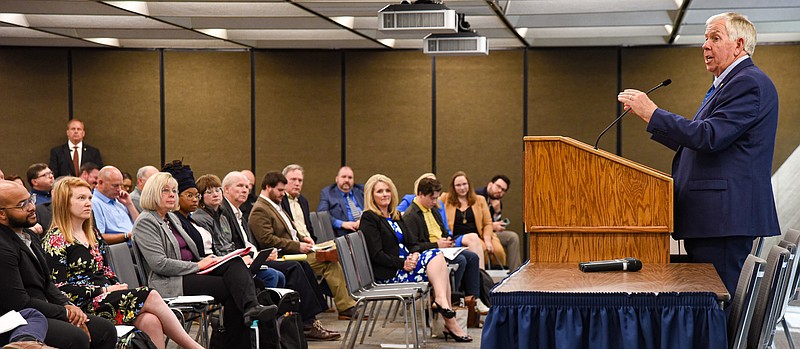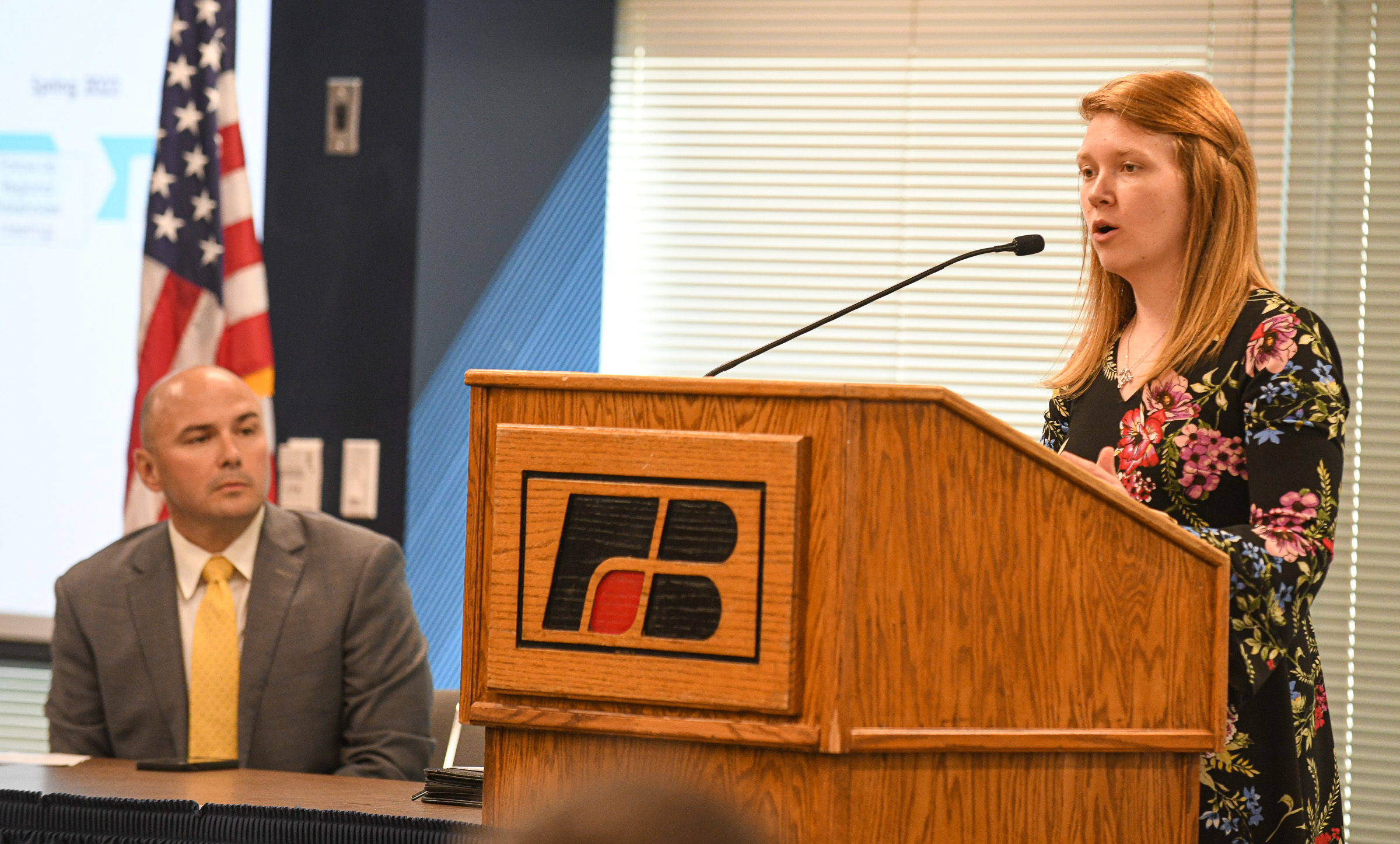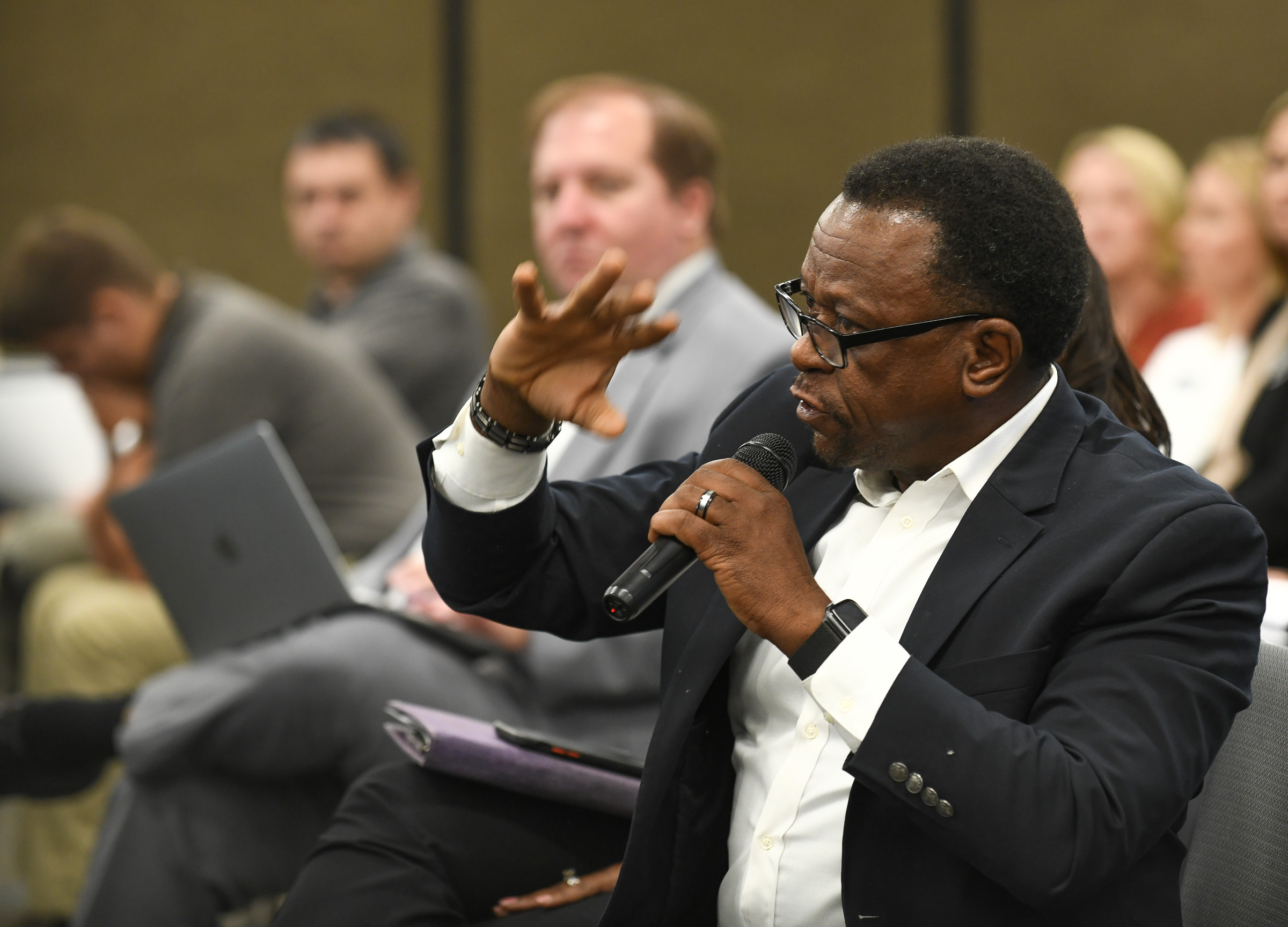Workforce challenges were top of mind for internet service providers as the state kicked off a new broadband connectivity campaign Tuesday.
"I'm talking to providers all over the state, that is the pain point right now," said Rep. Louis Riggs, a Hannibal Republican who has been a leader on state broadband efforts for the past several years. "We've got all the fiber. We've got all the supplies. We need people to put this stuff out here."
The Office of Broadband Development within the Missouri Department of Economic Development hosted the first of several planned listening sessions Tuesday as it rolls out its "Connecting All Missourians" initiative. The public engagement sessions, which will be hosted throughout the state during the next few months, will inform a five-year internet infrastructure deployment plan and various associated programs, such as those focused on internet adoption.
After reviewing where the state is at in terms of internet accessibility and efforts to bolster development, the office opened the floor to stakeholders for feedback.
Internet providers repeatedly said a lack of skilled workers is hindering their ability to deploy broadband services.
Derek Leffert, representing St. Charles-based internet provider Gateway Fiber, said it's likely the biggest challenge facing the industry in Missouri.
He asked what the state could do to assist providers with accessing contractors and filling labor needs, noting that providers will be competing for the same labor resources.
BJ Tanksley, the state's broadband office director, suggested internet providers utilize DED programs that employ ARPA and state funds to skill up workers. The training opportunities are provided in conjunction with educational institutions.
Applications for the ARPA-funded program close at the end of October, but the state's One Start program is similarly designed and isn't time-limited.
"They're actually prioritizing things like broadband because we knew there was going to be a need for that workforce," Tanksley said.
Riggs said the state's workforce development programs like One Start will be "huge" for broadband development. He also encouraged providers to let the state Legislature know what they need to skill more workers up to standard requirements.
Tanksley also said he's willing to look deeper into how the state can help facilitate connections between internet providers and contractors who can build the infrastructure.
Tim Mathis, a representative from Ameren, questioned whether the state's success in deploying broadband infrastructure would depend on its ability to attract labor and contractors from other states.
"Yes," Tanksley responded. "I think we're going to have to have people to do this work. We're going to have a lot of funds available, but we're going to have to have people and providers willing to do the work."
"There will be challenges as we go through this," he continued. "We're not the only state engaging in this major investment."
Tim Sherman, engineering director at Ervin Cable Construction based in Sturgis, Kentucky, said the company opened a second pole farm to train lineman. He said the company has increased its workforce volume by four-fold during the past five years because "there isn't a way to find them otherwise."
"Continuity of work is an important thing I think we should start speaking to," Sherman said. "It's not just about getting the money and it being a big dollar amount, but it's efficiency and continuity. Keeping resources busy and working and deploying in this state is going to be challenging, not just because the state is challenging but other states around are equally aggressive."
There are anywhere from 430,000 to 500,000 locations in Missouri whose internet service needs are unserved and underserved, according to an analysis the broadband office completed at the end of 2021.
It would take approximately $1.7-$2 billion to connect all of those areas and close coverage gaps throughout the state, according to the state broadband office.
Gov. Mike Parson said the state has a once in a lifetime opportunity to advance broadband development with state and federal funds.
"It's just a good time for the state of Missouri when it comes to broadband," he said. "To me, it's an exciting time for opportunity."
There will be more than $385 million in state and federal funds flowing to broadband development during the next several years.
The state's $265 million ARPA-funded broadband infrastructure program, which closed applications last week, garnered 320 applications with over $1 billion in requests, Tanksley said. Awards will be announced in December.
The state is also spending $20 million on a program to develop cell towers in underserved areas, the applications for which open in November.
In addition to that state funding, Missouri is expecting broadband infrastructure dollars through three federal programs: the Broadband Equity, Access, and Deployment (BEAD) program run by the National Telecommunications and Information Agency of the Department of Commerce; the ReConnect loan and grant program offered by the United States Department of Agriculture; and the Rural Development Opportunity Fund reverse auction conducted by the Federal Communications Commission.
Missouri will get at least $100 million from the BEAD program and there's potential for additional funding based on state needs. A new FCC coverage map still being finalized will determine state eligibility for the funds, and funding wouldn't arrive to the state until May 2023 at the earliest.
The state is applying for funding through the federal Digital Equity Act as well. It's proposing a $250,000 allocation from the federal government to fund 10-35 digital demonstrations aimed at boosting internet adoption throughout the state.
Missouri has broadband issues throughout its rural communities and large cities, Parson said, and it's important to address them for future generations.
"No excuses, we've got to get it done," he said. "Because if we truly care about their future, if you care about bringing businesses to Missouri, if you care about keeping your families at home and getting them all the opportunities they need here -- they may choose somewhere else but I want to make sure its not because we're not doing our part in the state of Missouri."
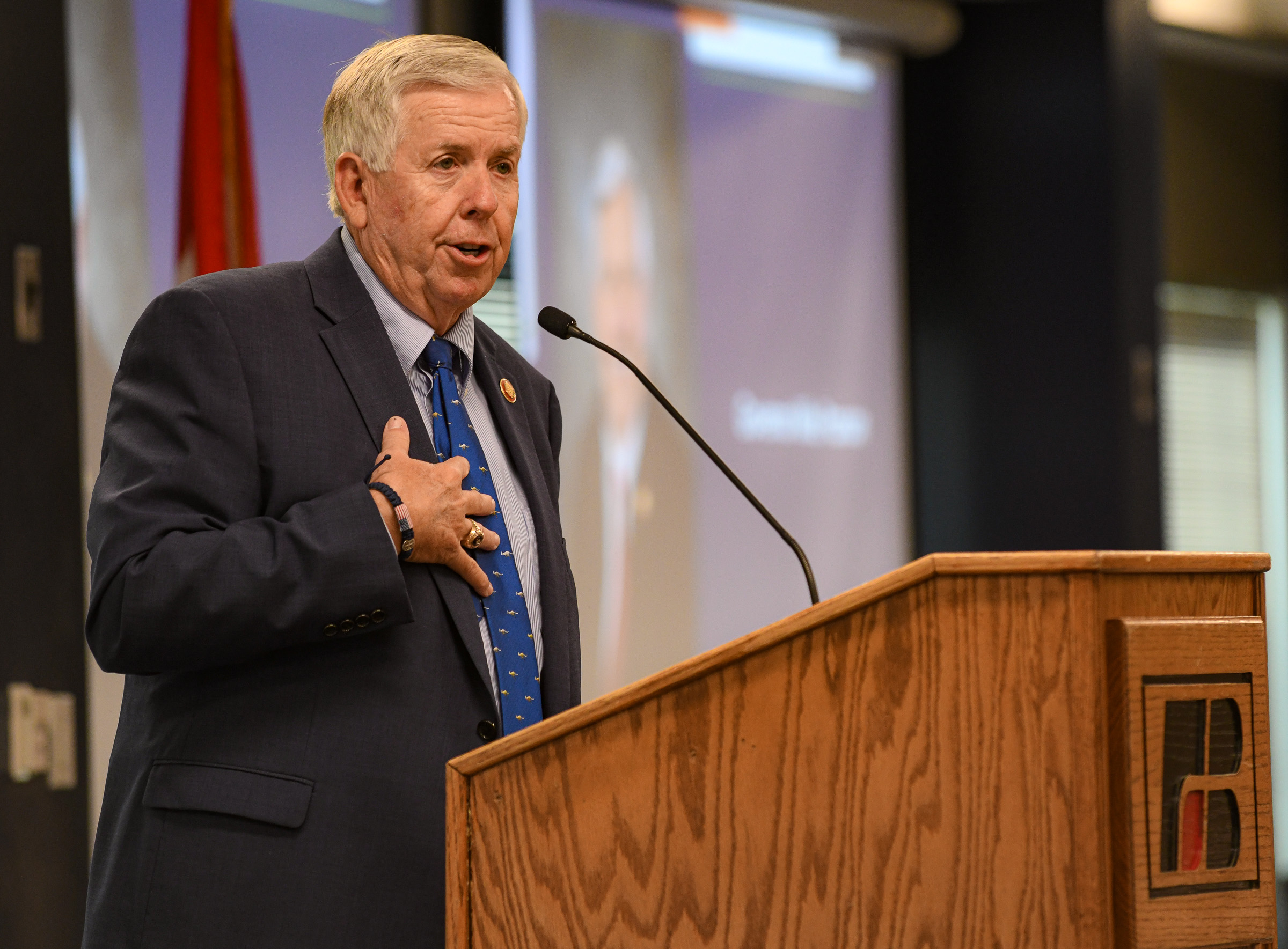 Julie Smith/News Tribune photo: Gov. Mike Parson took to the podium Tuesday, Oct. 4, 2022, at Missouri Farm Bureau Headquarters during the Connecting All Missourians Kickoff Summit. Representatives from counties and regions across the state heard Parson talk about how important he believes broadband connectivity is and how it's crucial to get the internet to every part of Missouri.
Julie Smith/News Tribune photo: Gov. Mike Parson took to the podium Tuesday, Oct. 4, 2022, at Missouri Farm Bureau Headquarters during the Connecting All Missourians Kickoff Summit. Representatives from counties and regions across the state heard Parson talk about how important he believes broadband connectivity is and how it's crucial to get the internet to every part of Missouri.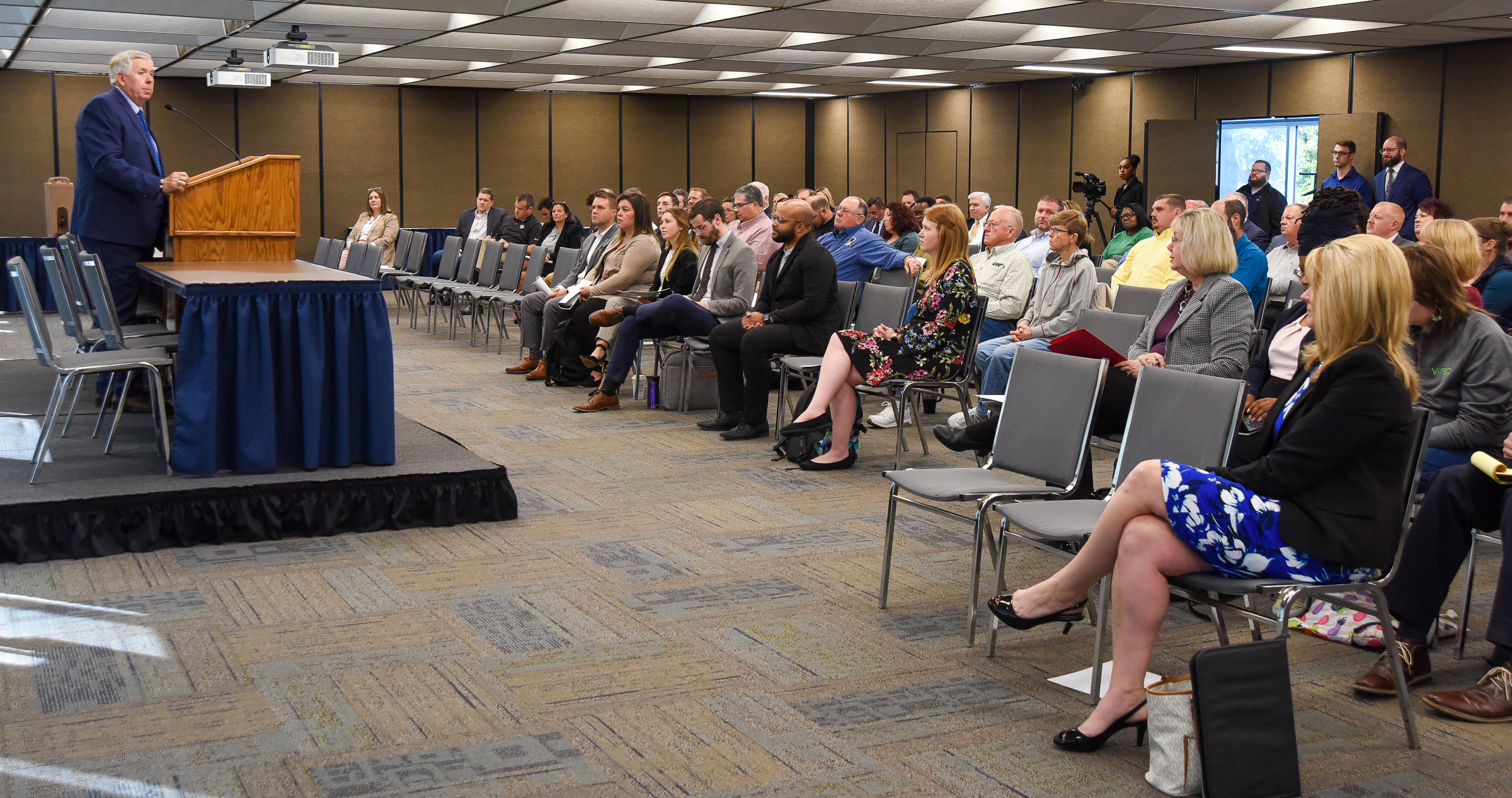 Julie Smith/News Tribune photo: Gov. Mike Parson took to the podium Tuesday at Missouri Farm Bureau Headquarters during the Connecting All Missourians Kickoff Summit. Representatives from counties and regions across the state heard Parson talk about how important he believes broadband connectivity is and how it's crucial to get the internet to every part of Missouri.
Julie Smith/News Tribune photo: Gov. Mike Parson took to the podium Tuesday at Missouri Farm Bureau Headquarters during the Connecting All Missourians Kickoff Summit. Representatives from counties and regions across the state heard Parson talk about how important he believes broadband connectivity is and how it's crucial to get the internet to every part of Missouri.
